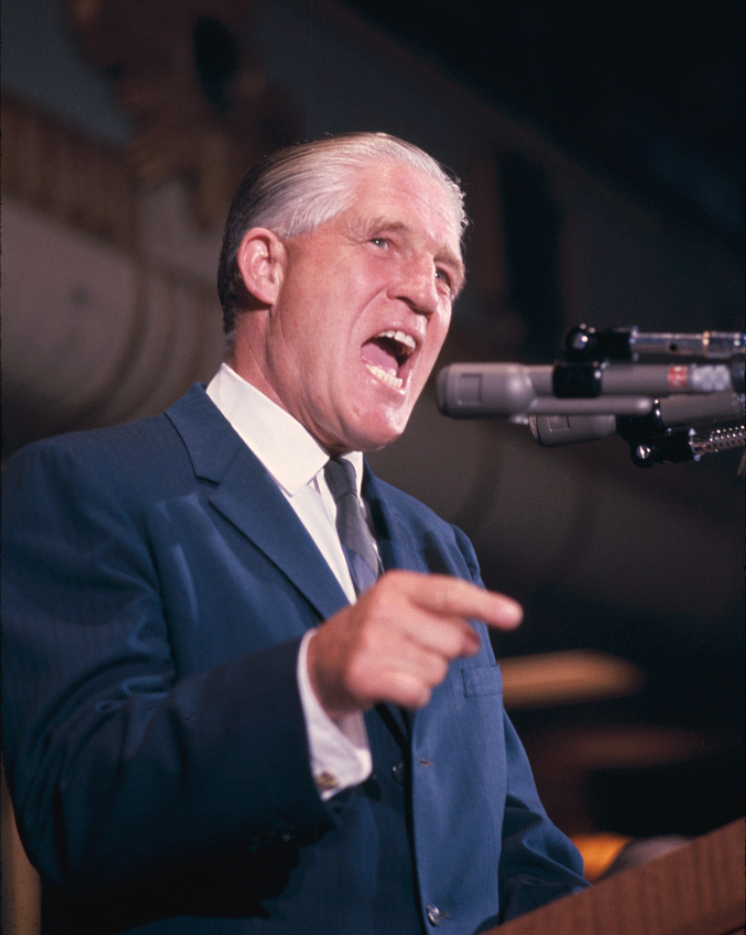Long trips out of town, based on the thinnest of pretexts. They’re called “trade missions,” but what trade has resulted from them?
The budget deadline comes and goes, and she barely notices. Doesn’t even seem to care.
This is a failure to discharge the basic and constitutional duties of her office.
The truth is staring us in the face. The signs are all there, but you don’t want to say the thing. Nobody does.
But the 10 million of Michigan should hear this: Gov. Gretchen Whitmer is just not that into us. It’s going to be a long year-and-a-half until Jan. 2027.
With no future in Lansing and no clear next move, Whitmer is beyond the reach of politics. What do you do with a governor who cannot be shamed?
Any normal politician would know better than to have 200 days come and go and not have called a special election in the 35th Senate district in Saginaw Bay. They’d know the optics look bad, and that the specifics—disenfranchising 270,000 people for the sake of politics—are worse.
Even Democrats know this and have tried to protect Whitmer from her own bad instincts.
The Freep said Whitmer should call the special election. Whitmer’s lieutenant governor said she should call the special election. AG Dana Nessel said she should call the special election. And yet the special election goes uncalled.
In her holdout, Whitmer has revealed a flaw in the Michigan Constitution of 1963.
Our supreme law assumes that smart politics, shame, and self-interest would make a governor quickly call for a special election. But it puts no timetable on the governor to do so. Customs and honor are forced to do all the heavy lifting. How’s that working out?
When a vacancy is created in the House or Senate, the decision on when to call a special election is made by one person, the governor. There is no timeline. Lawmakers can’t make her do it. Nessel can’t sue her to do it. The secretary of state can’t make her do it. That power resides in the governor’s hands alone.
Our constitutional system isn’t broken because of Gretchen Whitmer, it’s broken because it did not anticipate Gretchen Whitmer. It’s broken in design, not just in practice.
Before his election as governor in 1963, George Romney was the father of the 1963 Constitution. When he ran for president in 1968, Romney set a new standard, still observed today, that presidential candidates open their tax returns for the public.

George Romney’s Michigan was high-character and high-trust. We cannot say the same for Gretchen Whitmer’s Michigan.
When the framers of the 1963 constitution put legislative replacements in the governor’s hand—and when the governor only served two-year terms—a 200-day holdout was unthinkable.
In 1968, Romney ran for the Republican presidential nomination that eventually went to Richard Nixon. Back then, a governor might still have a future in politics to consider. Today’s decisions would be made in anticipation of tomorrow’s scrutiny.
That’s also changed; Michigan governors don’t think of their futures in politics anymore. Because for most of the last 60 years, our governors have not had futures in politics.
Not since John Swainson, who lost to Romney in 1962, has a Michigan governor won elected office after the governor’s office. He served on the Michigan Supreme Court until forced to resign in 1975 in a perjury scandal.
Since then we’ve had governors serve in presidential administrations (Romney, Blanchard, and Granholm) and governors return to private life (Engler, Snyder, Milliken). But no candidates for office, and no winners.
Whitmer might have been the frontrunner if she chose to run for Gary Peters’ Senate seat next year. Instead of running for a new office, Whitmer just abandoned the one she does hold.
No, Gretchen Whitmer is not into Michigan anymore. That much is obvious.
But she’s not into politics anymore, either. A politician with no future in politics cannot be shamed into doing the right thing. You just have to wait for time to run out.
James David Dickson is host of the Enjoyer Podcast. Join him in conversation on X @downi75.



